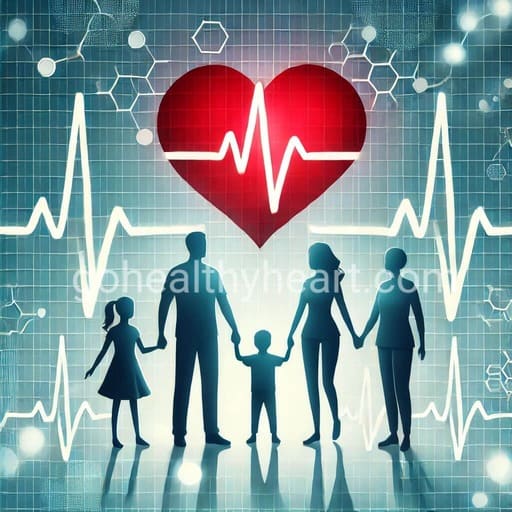Symptoms of Heart Failure You Should Never Ignore in 2025

Heart failure doesn’t happen overnight. It often sneaks up on you with symptoms that can easily be dismissed. But make no mistake—those subtle changes in your body could be signaling a bigger problem. And here’s the hard truth: ignoring early signs and symptoms of heart failure can be dangerous, even life-threatening.
Did you know that heart failure affects over 64 million people globally, with numbers rising, especially in countries like India? As heart disease becomes more common, knowing the signs to look for is more important than ever. Let’s break down the symptoms of heart failure, the risks involved, and most importantly, when it’s time to get medical help.
What is Heart Failure? (Understanding the Condition)
Heart failure happens when your heart can’t pump blood effectively enough to meet your body’s needs. This doesn’t mean the heart has stopped working entirely, but it is struggling, either because the heart muscle is too weak or too stiff.
There are two main types of heart failure: acute (sudden onset) and chronic (long-term). Chronic heart failure often worsens gradually over time, while acute heart failure can develop suddenly due to a heart attack or other major heart event.
Heart failure is more common than you think. According to the Indian Heart Association, the incidence of heart failure is rapidly increasing due to lifestyle changes, rising rates of diabetes, and hypertension. Knowing about this condition is the first step toward taking action.
Early Warning Signs of Heart Failure
Early detection is key when it comes to managing heart failure. The tricky part? Many symptoms seem unrelated to heart issues, which is why they often get overlooked. Here are some early warning signs to keep on your radar:
Shortness of Breath
Feeling winded after mild exertion, like climbing a flight of stairs or walking a short distance, could signal heart trouble. This happens because fluid starts building up in the lungs, making it hard to breathe. If you notice you’re constantly out of breath after tasks that never used to faze you, it’s time to take it seriously.
Persistent Coughing or Wheezing
You may find yourself coughing or wheezing, especially when lying down. This is due to fluid backing up into the lungs, known as pulmonary congestion. If your cough doesn’t seem to go away or worsens, this is a red flag.
Fatigue
We all feel tired from time to time, but constant fatigue that lingers even after rest could be a sign of heart failure. When your heart is under strain, it diverts blood away from less essential organs, like your muscles, which causes you to feel tired all the time.
Swelling in the Legs, Ankles, or Feet
Fluid retention is another key indicator of heart failure. Your body holds onto excess fluid, which tends to accumulate in your lower extremities. If you notice swelling in your ankles, legs, or feet that doesn’t go away, it could be time to check in with your doctor.
Rapid Weight Gain
Gaining several pounds in a few days without any change in diet or lifestyle? That rapid weight gain could be due to fluid buildup caused by heart failure.
Advanced Symptoms of Heart Failure (When It’s Time to Get Immediate Help)
As heart failure progresses, symptoms become more severe. Ignoring these signs can put you at serious risk for complications like heart attack or stroke. Here are the signs that demand immediate attention:
Irregular or Rapid Heartbeat
You might notice that your heart is beating unusually fast or skipping beats. This is known as arrhythmia, which can be a dangerous complication of heart failure.
Chest Pain or Pressure
Chest pain is always a red flag when it comes to heart health. If you feel a squeezing or pressure in your chest, especially if it’s accompanied by shortness of breath or pain in your arm or jaw, this could be a heart attack—get help immediately.
Confusion or Memory Loss
Heart failure can also affect your brain. Poor blood flow to the brain can cause symptoms like confusion, memory loss, or difficulty concentrating. These signs should never be ignored, as they signal a worsening of your condition.
Factors That Increase Heart Failure Risk
Certain health conditions and lifestyle factors can increase your risk of developing heart failure. It’s important to manage these risks to prevent heart problems from escalating. Major risk factors include:
High Blood Pressure (Hypertension)
High blood pressure puts extra strain on your heart, forcing it to work harder than normal. Over time, this can weaken the heart muscle, leading to heart failure.
Coronary Artery Disease (CAD)
Blocked or narrowed arteries restrict blood flow to the heart, making it difficult for the heart to function effectively.
Diabetes
Diabetes increases your risk of heart failure due to the damaging effects of high blood sugar on your blood vessels and heart muscle.
Family History
If heart disease runs in your family, you are more likely to develop heart failure. Stay vigilant if you have a family history of cardiovascular problems.
When to Seek Medical Help: Knowing the Urgent Signs
So, when should you seek medical attention? Not every symptom requires a trip to the emergency room, but there are some cases where immediate help is necessary:
Call your doctor if…
You notice persistent symptoms like swelling, fatigue, or shortness of breath that don’t improve with rest. These could be early signs that your heart function is declining.
Go to the ER if…
You experience severe symptoms like chest pain, fainting, or a rapid heartbeat. These are signs of a heart attack or advanced heart failure and require urgent medical care.
How to Monitor Your Heart Health at Home
Keeping tabs on your heart health doesn’t have to be difficult. Here are some simple ways to stay on top of things:
Track your symptoms
Keep a journal of any new or worsening symptoms and bring this to your doctor appointments.
Use at-home devices
Devices like blood pressure monitors and fitness trackers can help you spot any irregularities in your heart rate or blood pressure.
Stay consistent with check-ups
Regular visits to a cardiologist can help detect problems early and keep your heart failure under control.
Conclusion
Heart failure can be a silent, slow-moving condition—but you don’t have to be caught off guard. By recognizing the early signs and understanding the risks, you can take proactive steps to manage your heart health. If you or a loved one is experiencing any of the symptoms mentioned, don’t wait. Seek medical advice and stay informed. Early intervention could make all the difference in living a healthier, longer life.




2 thoughts on “Symptoms of Heart Failure You Should Never Ignore in 2025”